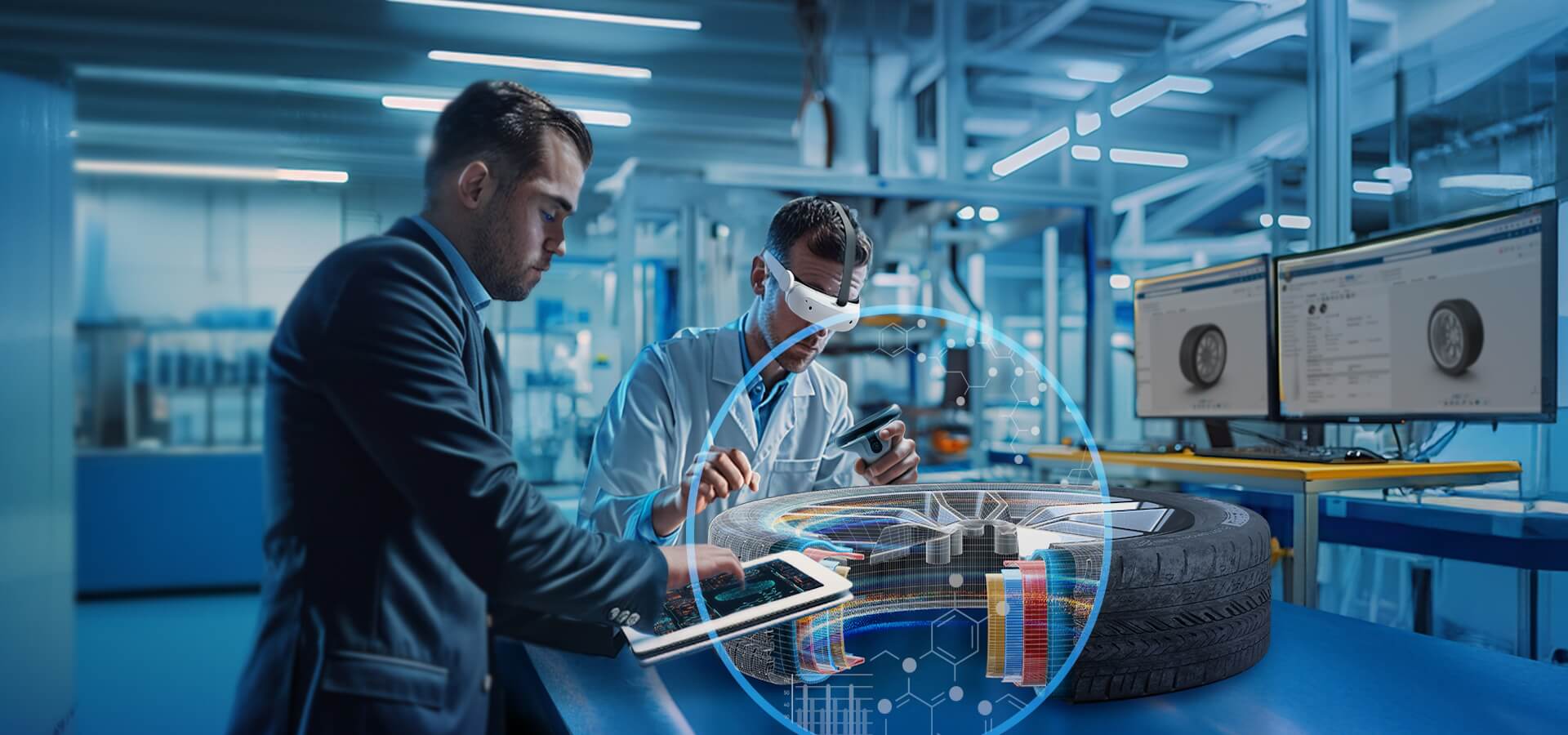Precision-Driven Innovation in the Tire Industry
Craft tire innovation excellence with the right integration and simulation strategy on the 3DEXPERIENCE® platform.
What Drives the Future of Tire Manufacturing?
The stakes in tire manufacturing have never been higher. Amid disruptive supply chains, stricter sustainability regulations and increased demands for autonomous and electric vehicles (EVs), success hinges on how quickly and effectively tire manufacturers overcome these complexities while meeting profits and sustainability targets.
The road ahead demands a precision-driven, integrated approach that redefines tire innovation excellence.
Download the Perfect Integration Strategy in Smart Tire Production ebook
Streamline tire development complexities with platform-driven efficiency and precision.
Supercharge Tire Innovation
In today's fast paced market, how quickly can manufacturers navigate challenges and deliver high-quality, better performance tires? To outpace the competition, innovation must happen at lightning speed. Our 3DEXPERIENCE® platform accelerates innovation in the tire industry, especially in material science and virtual prototyping, helping manufacturers gain up to 25% time to market.
Material Science Breakthroughs
The platform's advanced modeling and simulation capabilities enable new, sustainable materials to be developed quickly and precisely. This simulation of new materials performance reduces costly physical prototyping. Various tests under extreme temperatures, high speed conditions and new compound mixes can be virtually simulated safely and effectively to exceed expectations of even the most demanding mobility trends.
Virtual Prototyping for Real World Results
Conventional testing methods are lengthy and resource intensive. With the 3DEXPERIENCE platform, manufacturers can achieve productivity improvement by 30%. This virtual advantage not only accelerates time to market but also ensures that these tires of the future are superior in quality, performance and safety standards right from the start.
Conquer Manufacturing Complexities
The doubling of global vehicle miles by 2030 and the rise of EVs and autonomous vehicles amplify tire engineering complexities. To navigate, manufacturers need advanced tire technology that integrates end to end processes bringing unprecedented precision and efficiency to every stage.
Integrated Tire Engineering
Our 3DEXPERIENCE platform's holistic approach enables design iteration, performance simulation and efficient manufacturing processes all within one single, integrated environment. The result? Tires that are not just built to specification but engineered for perfection every time while boosting tire productivity by up to 30%.
Efficient Manufacturing Operations
Conventional methods are often error-prone and wasteful when transitioning from design to production. However, with our platform, design data flows directly into manufacturing, eliminating bottlenecks and reducing costly errors. Real-time integration enables continuous monitoring, allowing immediate adjustments to maintain quality, efficiency and precision at every stage.
Boost Sustainable Initiatives
With the Paris Accord in 2015, sustainability is no longer optional. Yet, many manufacturers struggle to achieve sustainable targets while meeting performance standards. Our 3DEXPERIENCE platform equips manufacturers with tools and data insights to design and manufacture eco-friendly, high-performing tires of the future.
Sustainable Innovation in Designs
In navigating the strict sustainability regulations, our platform provides manufacturers with digital continuity to design tires with sustainable materials and optimize the 'Magic Triangle' — the critical balance between rolling resistance, wet grip and durability for performance. This single source of truth boosts first-time right rates on new, sustainable designs that could drastically cut carbon emissions.
End-To-End Lifecycle Assessments
By embedding sustainability into every stage of the product lifecycle, manufacturers can effectively close the circularity loop. Every aspect of production — from raw materials sourcing to end-of-life recycling — is optimized for carbon reduction and aligned with responsible manufacturing.
Lead the Tire Revolution
As industry demands intensify, only those who adopt a precision-driven and platform-based approach can lead. With the 3DEXPERIENCE platform, manufacturers are equipped to overcome complexities and set new standards in tire innovation — right down to handling scrap tires. Achieve your carbon emission goals with these six crucial steps for success.
